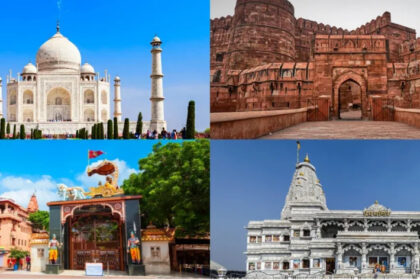Greece is one of the most famous travel destinations in the world. Its stunning beaches, whitewashed villages, historic ruins, and delicious food attract millions of visitors every year. However, if you are tired of crowded tourist spots, overpriced restaurants, and long queues, you are not alone. Many travelers dream of discovering the real Greece, experiencing its culture and beauty away from the crowds.
In this guide, we will share practical tips on how to enjoy authentic Greek experiences and explore hidden gems that few tourists know about.
1. Explore Lesser-Known Islands and Villages
While Santorini, Mykonos, and Athens are beautiful, they are crowded with tourists, especially in the peak season. For a more peaceful experience, consider visiting smaller islands and less-traveled towns, and stay connected with an eSIM provider for hassle-free travel.
Some options include:
- Naxos and Paros: Both islands have gorgeous beaches, charming villages, and fewer tourists.
- Andros and Tinos: Ideal for hiking, traditional villages, and quiet beaches.
- Peloponnese villages: Explore places like Monemvasia, Kardamyli, and Nafplio for a historic and authentic feel.
These locations allow you to enjoy Greece at your own pace and interact with locals without the usual tourist rush.
2. Stay in Family-Run Guesthouses
Hotels near popular attractions are often expensive and crowded. Instead, opt for small guesthouses or family-run hotels. These accommodations provide:
- Traditional Greek breakfasts with fresh local ingredients.
- Personalized recommendations for local restaurants, hidden beaches, and cultural activities.
- Opportunities to meet locals and learn about their way of life.
Websites like Airbnb or Booking.com can help you find these unique stays. Reading reviews will help ensure a safe and enjoyable experience.
3. Visit Local Markets
One of the best ways to experience authentic Greek culture is by exploring local markets. These markets are full of fresh produce, handmade products, and local delicacies.
- In Athens, the Central Market on Athinas Street offers fresh olives, cheese, pastries, and more.
- On smaller islands, farmers’ markets provide honey, wine, and traditional crafts.
Shopping at these markets not only avoids tourist traps but also supports local businesses and gives you a taste of Greek everyday life.
4. Eat Where Locals Eat
Tourist areas often have restaurants with high prices and generic menus. To enjoy genuine Greek cuisine:
- Ask locals for recommendations. Taxi drivers, shop owners, and hotel staff often know the best places.
- Look for restaurants where most of the menu is in Greek and tables are full of locals.
- Try traditional dishes like moussaka, souvlaki, fresh seafood, and regional specialties.
Dining in local restaurants gives you better food and a deeper connection to Greek culture.
5. Participate in Local Festivals
Greece has many festivals, village celebrations, and traditional events. Attending these events gives you a chance to interact with locals and experience authentic culture.
- Panigyria festivals: Small village celebrations with music, dancing, and food.
- Easter celebrations: Traditional Easter rituals in villages are vibrant and unique.
- Wine harvest festivals: Participate in grape stomping and wine tasting with local families.
These experiences provide a meaningful connection to Greek traditions and are often missed by tourists.
6. Explore Hidden Beaches
While famous beaches are beautiful, they can be crowded and overdeveloped. Greece has countless secluded beaches where you can enjoy peace and tranquility.
- Naxos: Agios Prokopios and Pyrgaki.
- Crete: Seitan Limania Beach and other hidden coves.
- Pelion Peninsula: Remote beaches accessible through short hikes.
These beaches often have small family-run tavernas nearby, giving you a local experience that is both relaxing and authentic.
7. Take Walking Tours in Small Towns
Walking through villages and small towns allows you to explore Greece at a slower pace. You can:
- Join self-guided walking tours using downloadable maps.
- Hire local guides who focus on history, architecture, and hidden spots.
- Take photography walks to capture quiet streets and local life.
Walking in smaller towns allows you to see the real Greece, away from crowds and tourist buses.
8. Learn a Few Greek Phrases
Knowing basic Greek words helps you connect with locals and navigate your trip more easily. Some useful phrases include:
- Kalimera – Good morning
- Efharisto – Thank you
- Posso kanei? – How much is it?
Even a small effort to speak Greek can lead to friendlier interactions and sometimes even insider tips from locals.
9. Visit Local Wineries and Olive Farms
Family-owned wineries and olive farms offer tours and tastings that are both educational and enjoyable. You can:
- Learn traditional wine-making or olive oil production techniques.
- Taste local wines and oils that are not exported.
- Understand Greek agricultural practices that have been passed down for generations.
These experiences are often more memorable than visiting commercial tourist attractions.
10. Rent a Car for Flexibility
While buses and ferries are common, renting a car allows you to explore remote villages, beaches, and towns at your own pace. A car gives you the freedom to:
- Avoid crowded tour buses and ferries.
- Discover small roadside tavernas and hidden beaches.
- Take scenic detours through mountains, valleys, and small towns.
Having your own transport makes it easier to create an itinerary that focuses on authentic experiences.
FAQs
When is the best time to visit Greece to avoid crowds?
Early spring (April-May) and late autumn (September-October) are ideal. Islands are less crowded and prices are lower.
How do I find local festivals?
Ask locals, check village noticeboards, or visit regional tourism websites. Many festivals are not widely advertised online.
Are smaller islands better than popular ones for authentic experiences?
Yes. Islands like Naxos, Tinos, and Andros provide quieter, more local experiences than Santorini or Mykonos.
Is it safe to visit secluded beaches?
Most hidden beaches are safe, but check accessibility, bring water and sunscreen, and make sure someone knows your location.
How can I learn basic Greek quickly?
Apps like Duolingo or Google Translate can help. Learn essential greetings, numbers, and polite expressions.
Final Thoughts
Finding authentic Greek experiences is about exploring beyond the tourist hotspots. By visiting smaller islands, staying in family-run guesthouses, enjoying local markets, and participating in festivals, you can discover the real Greece. Interacting with locals, trying traditional food, and exploring hidden beaches will make your trip more meaningful.
Take your time, embrace slower travel, and enjoy the culture, food, and natural beauty that Greece has to offer. The real magic of Greece is in its people, traditions, and everyday life away from the crowds.




